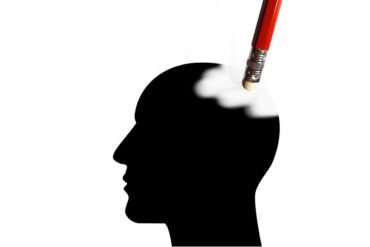The Power of Sleep: Unlocking Your Body’s Restorative Secrets

Introduction
Welcome to “The Power of Sleep: Unlocking Your Body’s Restorative Secrets.” In this comprehensive guide, we will delve into the fascinating world of sleep and explore the science behind it. Sleep is a vital aspect of our lives, affecting our physical health, mental well-being, and overall quality of life. By understanding the secrets behind restorative sleep and implementing healthy sleep habits, we can unlock the full potential of our bodies and minds.
The Importance of Sleep on Day-to-Day Functioning
Sleep plays a crucial role in our day-to-day functioning, impacting various aspects of our lives. Let’s explore some of the key ways sleep affects our cognitive function, mood regulation, stress management, physical health, and productivity and creativity.
Cognitive Function
A good night’s sleep enhances our cognitive performance by improving our ability to focus, make decisions, and think critically. Lack of sleep, on the other hand, leads to reduced attention span, slower reaction times, and impaired memory recall.
Mood Regulation
Sleep and emotional well-being are closely linked. Sufficient sleep helps regulate our emotions and improves our overall mood. On the flip side, chronic sleep deprivation can contribute to irritability, mood swings, and an increased risk of developing mental health disorders such as depression and anxiety.
Stress Management
Sleep is like a reset button for our stress levels. When we sleep, our bodies have a chance to relax and recover from the daily stressors we face. Sustained lack of sleep can make us more susceptible to stress, as well as impair our ability to cope with it effectively.
Physical Health
Getting adequate sleep is essential for maintaining good physical health. During sleep, our bodies repair and regenerate cells, boost the immune system, and regulate hormone levels. Chronic sleep deprivation has been linked to an increased risk of developing chronic conditions such as obesity, diabetes, cardiovascular disease, and weakened immune function.
Productivity and Creativity
When we are well-rested, our productivity and creativity soar. Sleep allows us to think more creatively, make connections between ideas, and problem-solve effectively. It also improves our concentration and ability to learn and retain information, making us more productive in our daily tasks.
The Science of Sleep
To understand the power of sleep, it’s important to delve into the science behind it. Sleep is a complex process governed by our internal body clock, known as the circadian rhythm, and influenced by various factors such as light exposure, hormones, and neurotransmitters.
The Sleep-Wake Cycle
Our bodies follow a natural sleep-wake cycle, or circadian rhythm, which is regulated by the suprachiasmatic nucleus (SCN) in the brain. The SCN responds to light cues and releases hormones such as melatonin, promoting sleepiness or wakefulness at appropriate times.
The Stages of Sleep
Sleep is divided into two main types: rapid eye movement (REM) sleep and non-rapid eye movement (NREM) sleep. NREM sleep consists of three stages, with each stage characterized by different brain wave patterns. REM sleep is the stage where most vivid dreaming occurs and is crucial for memory consolidation and learning.
The Role of Hormones and Neurotransmitters
Various hormones and neurotransmitters play a role in regulating sleep. Melatonin, often referred to as the “sleep hormone,” helps signal to our bodies that it’s time to sleep. Adenosine, a neurotransmitter, accumulates in the brain throughout the day and promotes sleepiness. On the other hand, neurotransmitters like dopamine and serotonin help regulate wakefulness.
Sleep Architecture
Sleep architecture refers to the pattern and structure of our sleep cycles. A typical sleep cycle lasts around 90 minutes and consists of alternating stages of NREM and REM sleep. Throughout the night, we go through several sleep cycles, with the amount of REM sleep increasing as the night progresses.
Tips for Optimizing Sleep
Now that we understand the importance of sleep and the science behind it, let’s explore some practical tips for optimizing sleep and unlocking its full restorative potential.
Stick to a Consistent Sleep Schedule
Establishing a regular sleep schedule helps regulate your body’s internal clock and promotes better sleep. Try to go to bed and wake up at the same time every day, even on weekends, to maintain a consistent sleep-wake cycle.
Create a Sleep-Friendly Environment
Make your bedroom a sleep-friendly environment by keeping it cool, dark, and quiet. Use blackout curtains or an eye mask to block out any external light, and earplugs or a white noise machine to mask any noise disturbances.
Establish a Relaxing Bedtime Routine
Engage in relaxing activities before bed to signal to your body that it’s time to wind down. This can include reading a book, taking a warm bath, practicing relaxation techniques such as deep breathing or meditation, or listening to calming music.
Limit Exposure to Electronic Devices
The blue light emitted by electronic devices such as smartphones, tablets, and computers can interfere with your sleep. Limit your exposure to these devices at least an hour before bedtime, or use blue light-blocking glasses to mitigate the effects.
Avoid Stimulants and Heavy Meals Before Bed
Avoid consuming stimulants such as caffeine or nicotine close to bedtime, as they can interfere with your ability to fall asleep. Additionally, avoid heavy or spicy meals, as they can cause discomfort and disrupt your sleep.
Engage in Regular Exercise
Regular exercise has been shown to improve sleep quality. However, it’s important to time your exercise appropriately. Exercising too close to bedtime can make it difficult to fall asleep, so aim to finish your workout at least a few hours before bed.
Manage Stress and Anxiety
Stress and anxiety can greatly interfere with your ability to sleep. Practice stress management techniques such as meditation, journaling, or talking to a therapist to help reduce anxiety and promote better sleep.
Conclusion
Sleep is a powerful tool for restoring and optimizing our bodies and minds. By understanding the importance of sleep and implementing healthy sleep habits, we can unlock its full potential and reap the benefits in our day-to-day lives. So prioritize your sleep and make it a priority to create a sleep-friendly environment, establish a consistent sleep schedule, and practice relaxation techniques to ensure you are getting the restorative sleep you need. Embrace the power of sleep and unlock the secrets to a healthier, happier you.


























